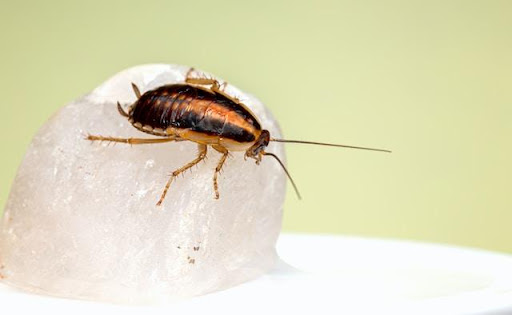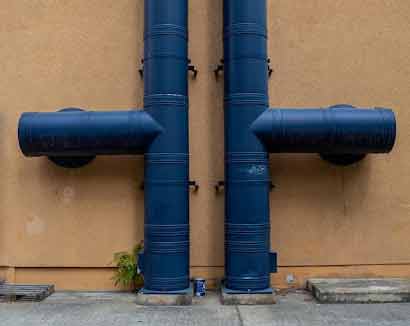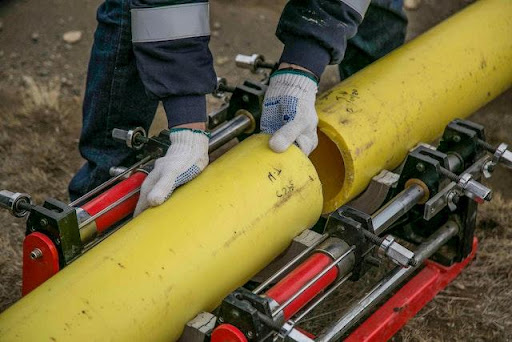What You Need to Know About Sewer Line Replacement in Chicago
Many things can go wrong with your home’s plumbing, but a damaged sewer line is probably the worst.
If a sewer line is broken, cracked, or corroded, the only solution to the problem may be to replace it.
But Keyrenter Merrimack Valley Management warns that replacing a sewer line is daunting due to the amount of work and money involved.
If you’re having trouble with the sewer line in your Chicago home and planning to replace it, this post will guide you through everything you need to know before you make that decision.
When is sewer line replacement necessary?
There is no need to replace a sewer line if something such as a hydro jet drain cleaning service will solve the issues. Typically, you only need to replace a sewer line if there are broken, cracked or corroded sections.
What are the signs that your Chicago home sewer line is due for replacement?
Slow drains
A single slow drain in the home is not a sign that your sewer line is in trouble. Multiple slow drains, on the other hand, means sewer line blockage or damage.
Gurgling sounds from drains
Gurgling sounds from the drains in your home mean that there are air pockets inside the sewer line due to a blocked or damaged pipe section.
Wet areas in the yard
A broken sewer line will leak its contents into the surrounding soil. This can show up as patches of exceptionally-green grass or soggy patches of lawn.
Smell of raw sewage
A damaged or blocked sewer line can cause sewer gases to escape into the air inside or around your home.

A broken sewer line will draw pests to your home because of the raw sewage and nutrient-rich water the pipe spills into the soil.
Pest invasion of the home
A broken sewer line will draw pests to your home because of the raw sewage and nutrient-rich water the pipe spills into the soil.
Note that the presence of these signs is not definitive proof that you need sewer line replacement. Before you decide that you need sewer line replacement, talk to at least three plumbers and follow the steps below.
Preliminary steps for sewer line replacement
Assess the damage
The best way to do this is through a sewer camera inspection. During the inspection, the plumber will send a video camera into your sewer line to get visual confirmation of the condition of the pipes. The result of this inspection will help you determine if you need sewer line replacement.
Think about local building codes
Before doing a sewer line replacement, make sure you understand the regulations relating to your sewage system. Responsibility for fixing the problem may lie with the city. If your sewer line does not comply with the codes, this is the right time to make the necessary changes.
Consider all your options
You will be faced with different options when replacing your sewer line. In addition to deciding the type of sewer replacement method to use, you must decide if you want to replace a portion of the sewer line or the entire length of the pipe.
Types of sewer line repair methods
There are several types of sewer line repair methods, but we will talk about four of them:
Traditional sewer line replacement
This is the old way of replacing sewer lines. It involves heavy machinery with a lot of digging. The advantage of this method is each new pipe can be inspected to ensure the sewer line has been properly installed.
Trenchless sewer repair
These are a variety of sewer line replacement methods which do not involve digging a trench. Three of the most common trenchless methods are:
- Pipe repair clamps: This method is best for fixing small cracks and slow leaks in the sewer line.
- Cured-in-place pipe (CIPP): This is the best method for repairing older pipe systems. A polyester or fiberglass liner is pulled into the damaged pipe to reinforce it or create a new pipe.
- Pipe bursting: With this method, a special drill is pulled through the old pipe to break it apart. At the same time, a new pipe is pulled in to replace the old pipe.
Which sewer line replacement method is best for your home? The proper technique for your home depends on the details of the problem you are trying to solve.

You will be faced with different options when replacing your sewer line.
Avoiding future sewer line damage
Unless the sewer line in your Chicago home is damaged because it has passed its projected lifespan, you may want to find out what caused the problem. This will help you protect the sewer line from future issues. The following steps will help you protect your sewer lines.
- Do not flush the wrong items/materials into the sewer line (ask your plumber about this).
- If possible, avoid chemical drain cleaners: they will damage your sewer line.
- If there are trees near the sewer line, you may need to protect the line from tree roots.
- Have the sewer line inspected and cleaned at least once a year.
Lastly, if you would like more help with making the right decisions on how to solve the sewer line issues in your Chicago home, talk to us at 773-599-9181 or fill out the form below. We would be most happy to chat with you.
